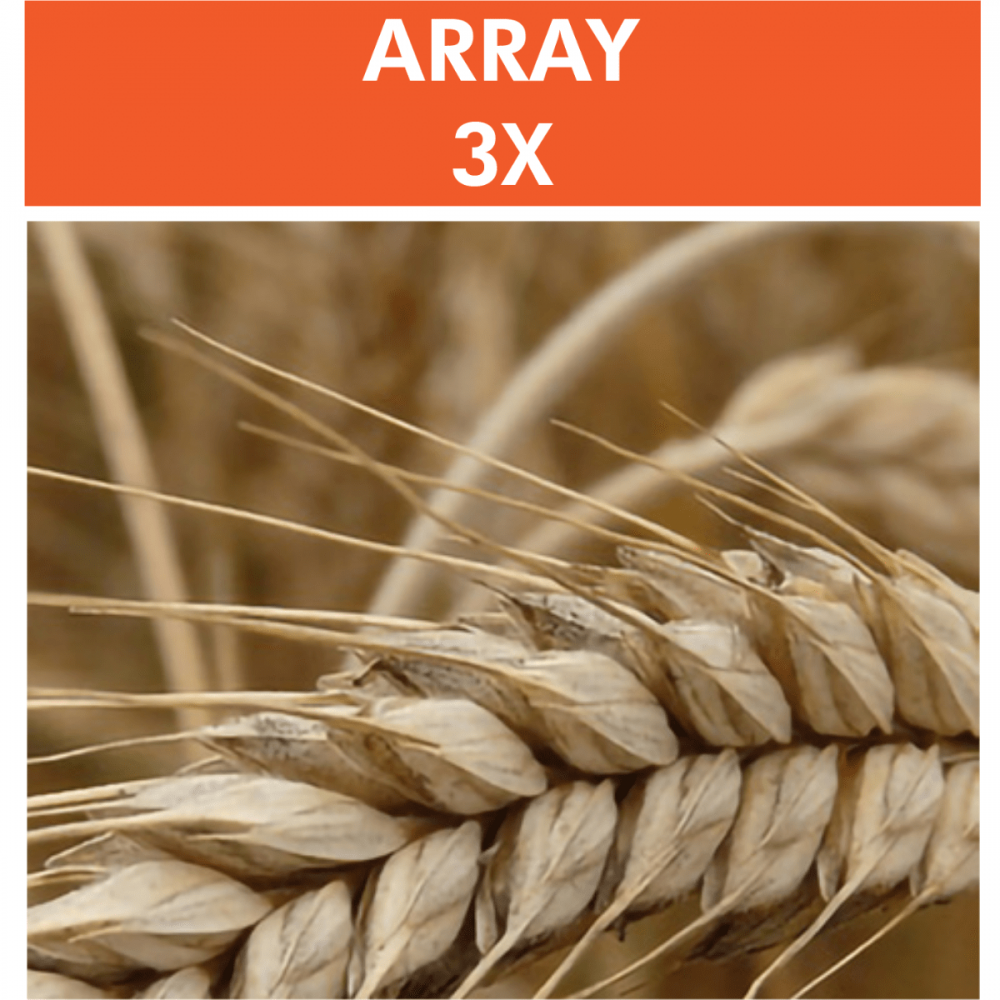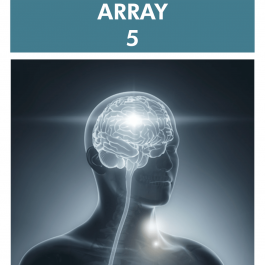
Array 3X – Wheat/Gluten Proteome Reactivity & Autoimmunity
- Wheat IgG
- Wheat IgA
- Wheat Germ Agglutinin IgG
- Wheat Germ Agglutinin IgA
- Native + Deamidated Alpha-Gliadin-33-mer IgG
- Native + Deamidated Alpha-Gliadin-33-mer IgA
- Alpha-Gliadin-17-mer IgG
- Alpha-Gliadin-17-mer IgA
- Gamma-Gliadin-15-mer IgG
- Gamma-Gliadin-15-mer IgA
- Omega-Gliadin-17-mer IgG
- Omega-Gliadin-17-mer IgA
- Glutenin-21-mer IgG
- Glutenin-21-mer IgA
- Gluteomorphin+Prodynorphin IgG
- Gluteomorphin+Prodynorphin IgA
- Gliadin-Transglutaminase IgG
- Gliadin-Transglutaminase IgA
- Transglutaminase-2 IgG
- Transglutaminase-2 IgA
- Transglutaminase-3 IgG
- Transglutaminase-3 IgA
- Transglutaminase-6 IgG
- Transglutaminase-6 IgA
More than one wheat protein can cause Gluten Sensitivity – Cyrex Labs tests for multiple peptides of gluten.
Being Gluten Sensitive isn’t as black-and-white as once thought. Actually, gluten is a misnomer – “gliadin” is the portion of wheat that triggers an immune response in people (since “gluten” is commonly used I will stick with that term). It also has been discovered that wheat is made up of more than 100 different components that can cause a reaction, not just one (gliadin).
Until now testing for Gluten Sensitivity has only been against one of those components, alpha gliadin. Through extensive research Cyrex pinpointed the twelve components of wheat that most often provoke an immune response.
This new test greatly expands the parameters of gluten sensitivity testing, catching those who may have previously tested negative because they don’t react to the alpha gliadin. A ‘false negative’ occurs when the test results says a condition is not present, when in reality there is a problem. Many forms of standard testing for celiac disease or gluten sensitivity do not include the right markers or enough of the right markers. Using Cyrex Array 3 allows for more accurate results with fewer ‘false negatives’.
Opioid testing
Array 3 screens for antibodies to the opioids produced from wheat called Gluteomorphins and Prodynorphins. Gluten can have a drug-like opiate effect on an individual. Antibodies to gluteomorphin and prodynorphin can indicate that gluten is affecting your brain. Some people have enzymes in their digestive tract that break gluten down into opioids that act like heroin or morphine. Embarking on a gluten-free diet can cause terrible withdrawal symptoms in these people. One practitioner tells of a patient whose withdrawal symptoms were so severe she went to the emergency room.
Another problem with opioids is they disrupt brain function by attaching to receptor sites normally meant for neurotransmitters. Neurotransmitters are brain chemicals that help dictate our personality, moods, behavior, bodily function, and more.
This opioid effect on neurotransmitter receptors explains why gluten plays a role in so many cases of ADD/ADHD, autism, or behavioral problems in children; or brain fog, depression, anxiety, schizophrenia, anorexia and migraines in adults. When one mother put her autistic son on a gluten-free diet, he began eating the binding out of books as he was so desperate for his gluten-opioid “fix.”
Lectins
Array 3 also includes testing for antibodies to the wheat lectin Wheat Germ Agglutinin (WGA). WGAs are lectins or carbohydrate-binding proteins with a capacity to bind to many cells and tissue antigens. Lectins can bind to cells involved in the immune system and induce toxic damage, inflammation and autoimmunity.
Enzymes
Array 3 includes testing for antibodies to enzymes: Tissue Transglutaminases -2, -3 and -6 and Gliadin-Tranglutaminase Complex. Transglutaminases are a family of enzymes that form protein polymers, like scaffolding, which are vital in the formation of barriers and stable structures such as gut tissue. Antibodies may appear in serum before the clinical onset of symptoms.
Gliadin-Transglutaminase IgG can assist with diagnosing Celiac Disease.
Tissue Transglutaminase-2 (tTG2) is commonly recognized for being an effective diagnostic test for celiac disease. Transglutaminase is an enzyme in the digestive tract targeted in an autoimmune attack triggered by gluten. tTG2 antibodies indicate gluten is attacking gut tissue through an autoimmune attack.
Tissue Transglutaminase-3 (tTG3) is express mainly in the epidermis (skin disorders) and to a lesser extent in the placenta and the brain.
Tissue Transglutaminase-6 (tTG6) is expressed in neural tissue. tTG6 may be involved in the pathogenesis of gluten reactivity-related neurological dysfunction.
Click Here to View Test Brochure
*Please read the following prior to placing your lab test order*
- All sales are final and no refunds will be afforded and you waive any rights to charge-back your purchase with your credit card processor.
- theDr.com does not participate in, take assignment, or accept any private insurance. We do not provide super bills and cannot assist with claim resolution for laboratory tests or consultations.
- Orders for this test are accepted form the United States Only. International Orders are not accepted for this test.
- TheDr.com is unable to ship test kits to the state of New York as per state laws.
- TheDr.com is unable to ship lab kits to P.O. boxes. Please use a residential or business address.
- Some lab providers fill out requisition forms ahead of time with client information. To avoid confusion when processing orders, if you are ordering lab kits for multiple people, please place a separate order for each person.
- After you order a test kit, getting the lab draw and/or completing the test is your responsibility.
- Once thedr.com has received your test results, the results will be uploaded to your HIPAA compliant client portal and you will receive an email instructing you how to access them.
- Cyrex Labs covers a flat rate with contracted labs for the phlebotomy services associated with their test kits requiring a blood draw. Depending on the location and lab, additional draw fees may be required.
- Once you have purchased your test, your requisition will contain the necessary information to schedule a blood draw here: https://www.cyrexlabs.com/PayformyTest/tabid/126/Default.aspx
- If you live in a remote location, you may need to travel a distance or ask your local physician or hospital to assist with phlebotomy.
- We recommend contacting the draw center and scheduling an appointment for your blood draw in advance.
- Please contact testing@thedr.com with questions.
- This test does NOT include a test interpretation consultation. If you are interested in having your test results interpreted please contact our former director of Clinical services Michelle Ross, MS, MA, CNS, LDN, IFMCP at info@michelleross.com once you have received your test results.
- *Test interpretations must take place within 3 months of placing the test order.
- Michelle Ross is a Certified Nutrition Specialist, a Licensed Dietitian-Nutritionist and an Institute of Functional Medicine Certified Practitioner. Graduating Summa Cum Laude from the University of Bridgeport, Michelle holds a Master of Science in Human Nutrition and a master’s degree in Education from Pacific Union College. Michelle’s graduate school thesis focused on the complexity of gluten-related disorders and the potentially devastating effects of gluten on the body. She has been extensively trained in the advanced interpretation of functional testing, autoimmune diseases, gluten- and wheat- related disorders, and microbiome health.
Before Placing Your Order Please Read
The Complete Terms and Conditions for Cyrex Test Orders at theDr.com
Cyrex Laboratories is CLIA* certified and licensed in the state of Arizona. Cyrex participates in CAP (College of American Pathologists) surveys to assure quality procedures and regulatory compliance. Cyrex Laboratories follows the strictest federal guidelines for the development of its assays.
*Congress passed the Clinical Laboratory Improvement Amendments (CLIA) in 1988, establishing quality standards for all laboratory testing to ensure the accuracy, reliability, and timeliness of patient test results regardless of where the test is performed.

